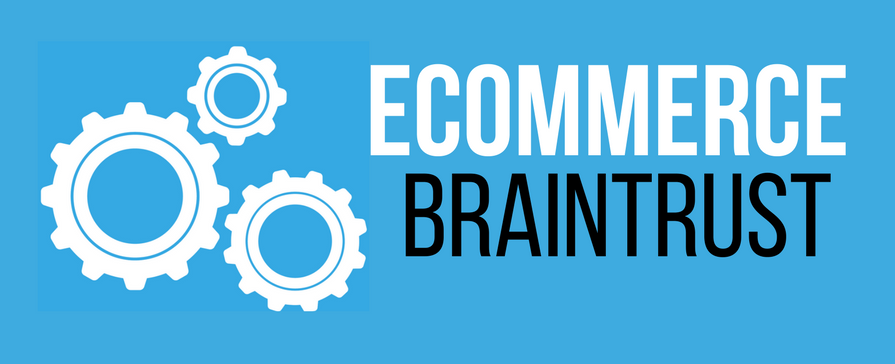Amazon Weekly News Digest - August 7 - Episode 92
WITH BOBSLED FOUNDER & CEO KIRI MASTERS
DESCRIPTION
For the next couple of weeks, we're sharing an extra Ecommerce Braintrust episode every week! These weekly "News Digests" are a round-up of the biggest Amazon-related news from the past week. But we don't stop there. Kiri gives her take on the news and what it actually means for brands selling on Amazon.
Enjoy, and let us know what you think!
KEY TAKEAWAYS
Theme 1: Amazon Antitrust Scrutiny
The FTC is looking into the Amazon and Apple deal that ‘crushed’ small resellers
Last year, Apple finally made a deal with Amazon to sell iPhones directly on the platform, and Amazon gated sales of Apple products so 3P’s couldn’t resell there. It was possibly a boon for consumers, and beneficial for Apple knowing that counterfeiters and UA’s would be curbed, but the US federal trade commission (FTC) has reportedly been investigating the effect of the gating on small businesses who were affected by the gating.
What this means for brands: Most brands would love for their brand to be gated on Amazon. But this is a very rare occurrence. Perhaps now we know why - such activity can be considered anti-competitive or even antitrust (price fixing, illegal market allocation). Brands should be taking protective measures into their own hands with reseller agreements, and ongoing scanning of reseller activity on their listings.
Amazon wants your best price, this is also viewed as anti-competitive
Amazon is indirectly causing third-party sellers to raise prices on their products if those products are listed on competing storefronts at lower prices, according to the report from Bloomberg. This is also viewed as potentially anti-competitive.
How they do it: Amazon scans a merchant’s prices for listings on its Marketplace platform and compares them to that same merchant’s listings on other platforms, like Walmart and eBay. It then notifies the seller of the disparity and informs the business that it may lose promotional benefits — like a higher placement in search results, Prime shipping, and access to “buy now” buttons — due to the difference in price, which would lead to lower sales. (Via The Verge)
What this means for brands: A couple of months ago, Amazon quietly amended their seller agreement to say that merchants were not required to offer the lowest price on Amazon, but as many found - in practice things were very different. The attention on this issue is a good thing for brands who’ve been negatively impacted by this practice in the past. Hopefully we see Amazon stop this behavior so brands can increase their prices and not be penalized for doing so.
Further reading: A great interview on Marketplace Pulse with Sally Hubbard, Director of Enforcement Strategy at the Open Markets Institute, who outlines the specific actions Amazon has taken which could be viewed as anti-competitive.
Theme 2: Amazon is Getting Social
Amazon is increasingly looking more like a social media site - going deep on Influencer collaborations and live video.
During Prime Day this was very obvious, with Taylor Swift headlining a big concert to promote the event and Lady Gaga launching an Amazon-exclusive cosmetics line, Haus Laboratories.
This week, we saw Lady Gaga going live for the first time on Amazon’s livestream channel, demonstrating some of Haus Labs’ products.
What this means for brands: Although there’s skepticism from many marketers these days about the true ROI of influencer marketing, Amazon is investing heavily in the Gaga line, and there’s probably something to learn from that. Maybe quality trumps quantity, or maybe this is the first of many collaborations. The second thing to keep an eye on is Live Video, which Amazon has been promoting heavily to merchants. Further reading
California is coming for your taxes
As part of the Wayfair decision, the State of California requires marketplace facilitators (sellers) that surpass the $500,000 threshold to register, collect, and remit sales tax in California starting October 1, 2019. This is regardless of whether or not you are a California-based business.
What this means for brands: If you're a seller, talk with your CPA asap and investigate sales tax reporting software like Avalara and TaxJar.
MENTIONED IN THIS EPISODE
Amazon is tightening requirements for sellers to have product liability insurance
….However Amazon is increasingly being held accountable for faulty products
What’s Driving Amazon’s $10 Billion Advertising Business
Amazon Launches Its First B2B Private Label Brand
Land Of The Giants is an amazing new podcast from the Vox Media Network which focuses on the origin story of Amazon, and its rapid integration into our daily lives. Or in their words: “how the retailing juggernaut has infiltrated our homes and changed the way we shop, work, and live.”
